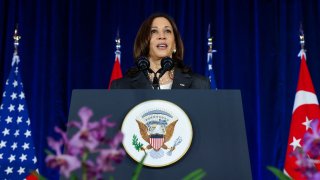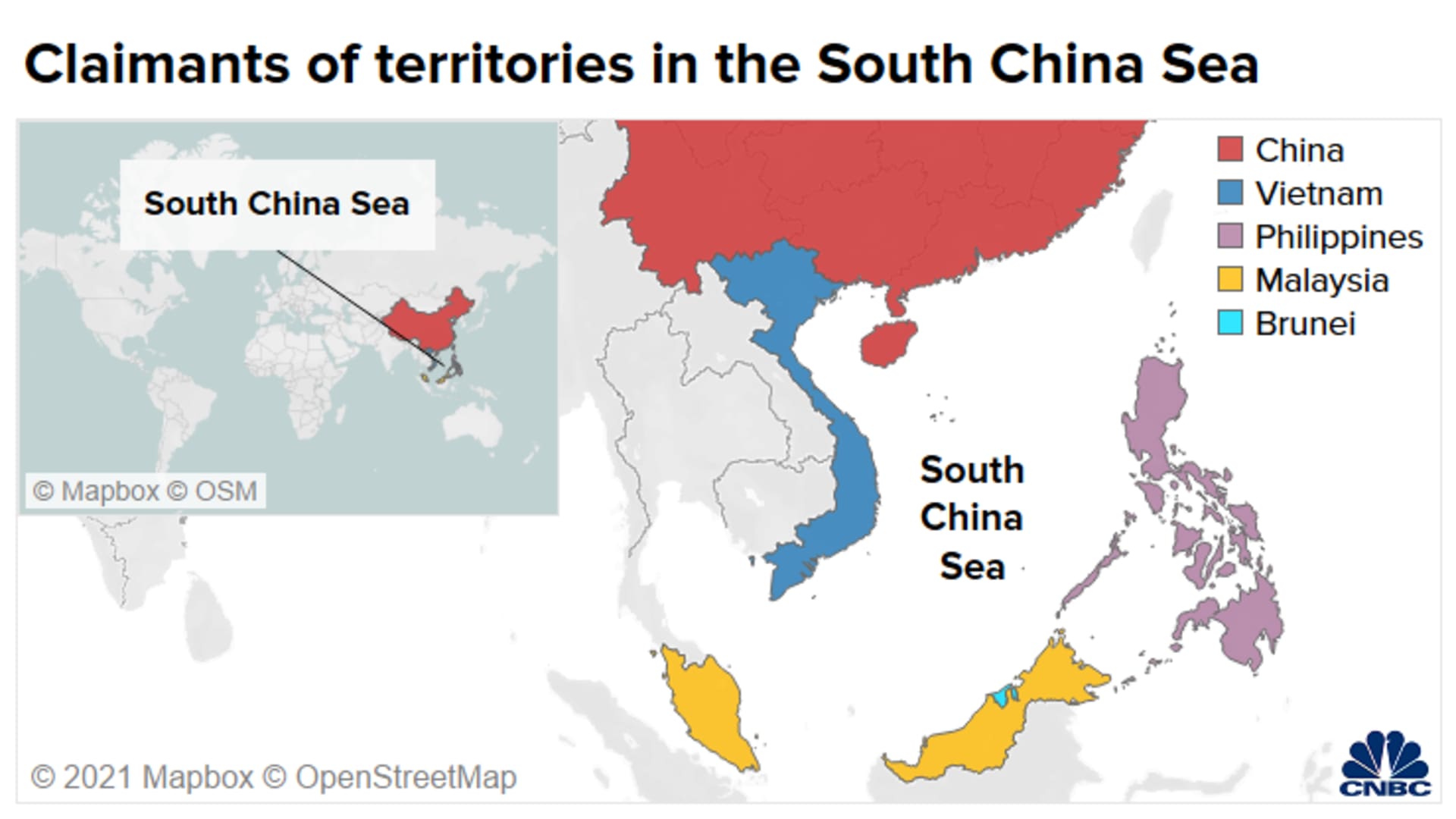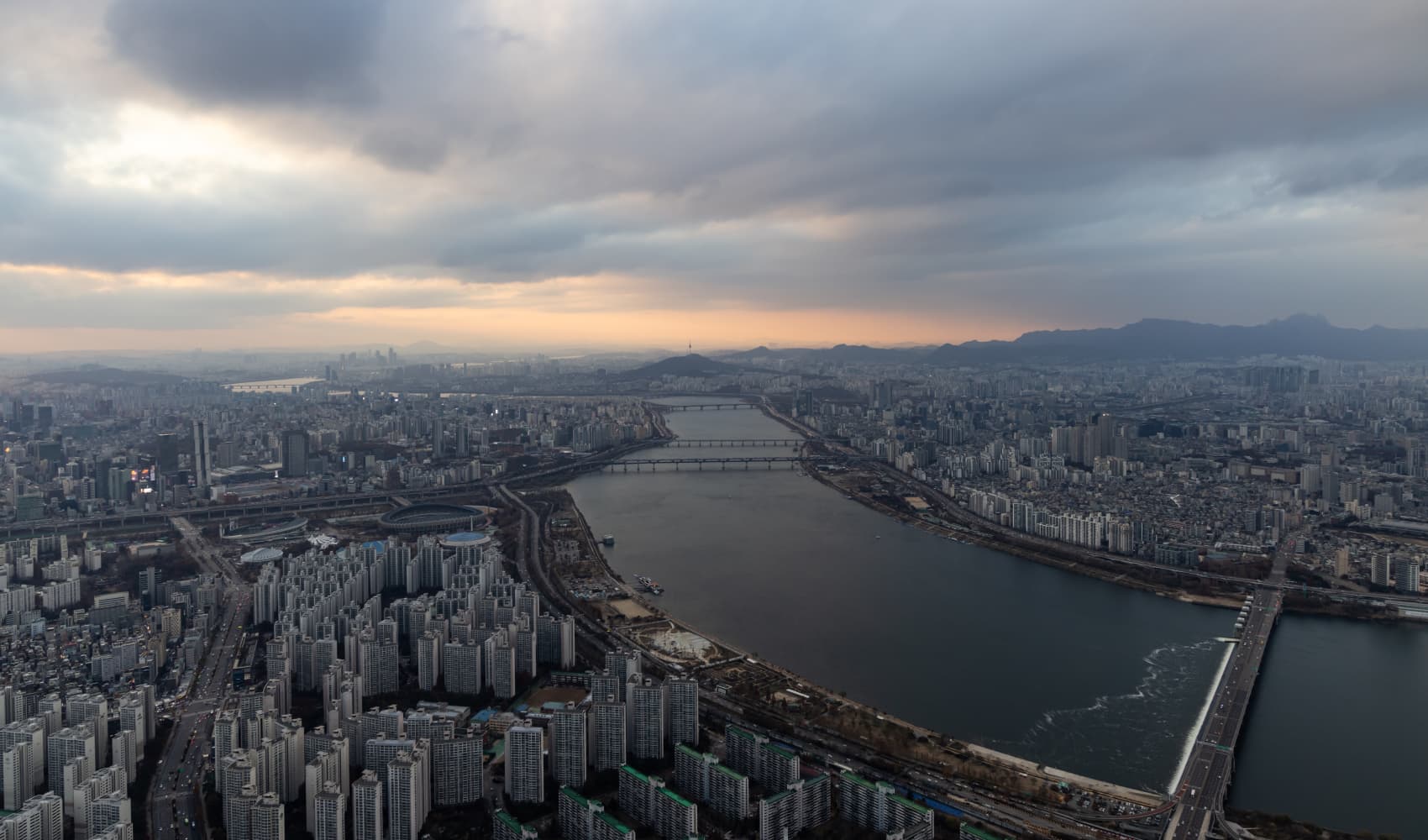
- Vice President Kamala Harris said Beijing's actions in the South China Sea are "unlawful" and undermined international rules-based order, threatening the sovereignty of other nations.
- She also sought to assure countries in Asia that they won't have to choose between the U.S. and China.
- Harris was speaking in Singapore during her first official visit to Southeast Asia. She is scheduled to leave for Vietnam on Tuesday afternoon, before departing the region on Thursday.
SINGAPORE — Vice President Kamala Harris on Tuesday called out Beijing's actions in the South China Sea, and sought to assure countries in Asia that they won't have to choose between the U.S. and China.
"We know that Beijing continues to coerce, to intimidate and to make claims to the vast majority of South China Sea," Harris said in a speech in Singapore during her first official visit to Southeast Asia.
"These unlawful claims have been rejected by the 2016 arbitral tribunal decision, and Beijing's actions continue to undermine the rules based order and threaten the sovereignty of nations," she added. "The United States stands with our allies and partners in the face of these threats."
We're making it easier for you to find stories that matter with our new newsletter — The 4Front. Sign up here and get news that is important for you to your inbox.
China claims nearly the entire South China Sea — but a tribunal at the Permanent Court of Arbitration dismissed that claim as legally baseless in 2016.

The South China Sea is resource-rich waterway that's a vital commercial shipping route where trillions of dollars of world trade pass through each year. In addition to China, other territorial claimants in the sea include Taiwan, Vietnam, Malaysia and the Philippines.
Money Report
But Beijing ignored the tribunal ruling and in the last few years, even increased its presence by deploying vessels to patrol the waters and building artificial islands.
Harris said the U.S. wants to promote a free and open Indo-Pacific — a region that broadly refers to the area that lies between the Indian and Pacific Oceans.
U.S.-China competition
Southeast Asia, which lies in the heart of Indo-Pacific, was in the last few years caught in the middle as the rivalry between the U.S. and China intensifies.
The U.S. has for decades been an important presence in Southeast Asia through its security and economic engagements, but China's aggressive push through programs such as its Belt and Road Initiative has increased Beijing's influence in the region.
Harris assured countries in the region that the U.S. will not make them choose between Washington and Beijing.
"I must be clear: Our engagement in Southeast Asia and Indo-Pacific is not against any one country, nor is it designed to make anyone choose between countries," she said.
The vice president also stressed that the U.S. remains committed to the region, even as President Joe Biden faced criticism over how he handled the withdrawal of American forces from Afghanistan. She reiterated her comment on Monday that the U.S. is "laser focused" on evacuation efforts.
Asian countries have had to balance a rising China and the U.S. which has been a "security guarantor" in the region, according to David Adelman, a former U.S. ambassador to Singapore, who spoke to CNBC after Harris' speech on Tuesday.
Countries in Asia would want tensions between the U.S. and China to calm down — but that will take "some time," he told CNBC's "Capital Connection."
"There's not going to be any dramatic breakthrough," said Adelman, who's now managing director and general counsel of asset management firm KraneShares.
"It's going to happen incrementally beginning with confidence-building measures, and slowly easing some of the trade war that developed during the Trump administration, and returning to — I think — a more normal relationship between Beijing and Washington," he added.
Harris arrived in Singapore on Sunday and is scheduled to leave for Vietnam on Tuesday afternoon, before departing the region on Thursday. Her visit to the region followed several high-level U.S. engagements with Southeast Asian leaders.
Secretary of State Antony Blinken attended virtual meetings of the Association of Southeast Asian Nations, or Asean, earlier this month; while Defense Secretary Lloyd Austin visited several countries in the region in July, including Singapore, Vietnam and the Philippines.






